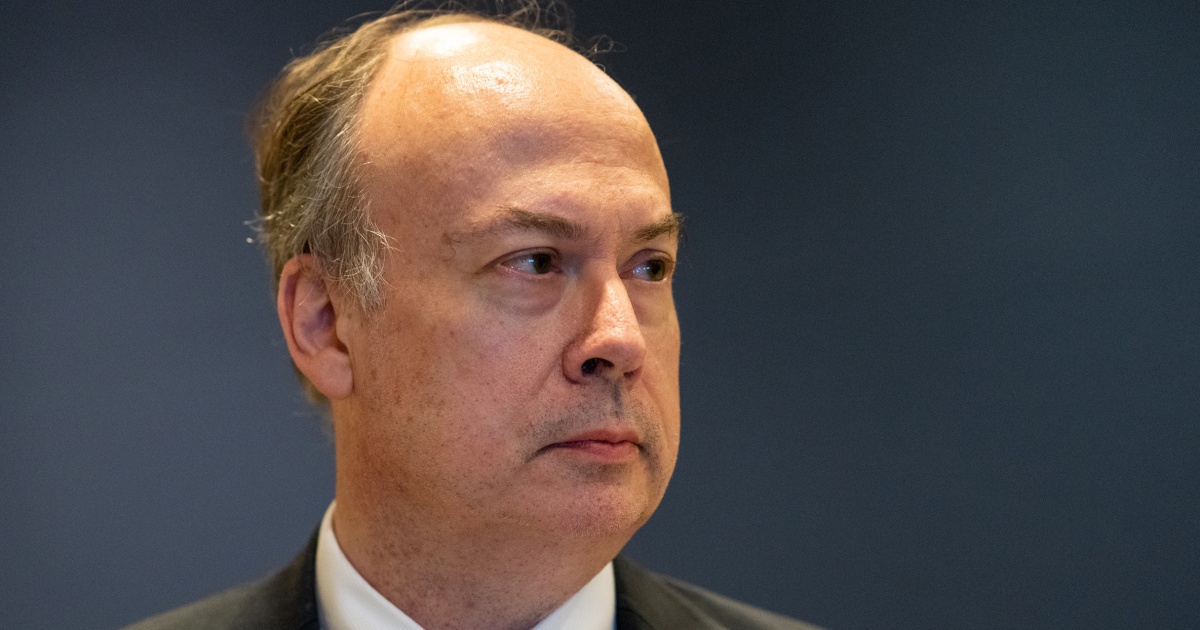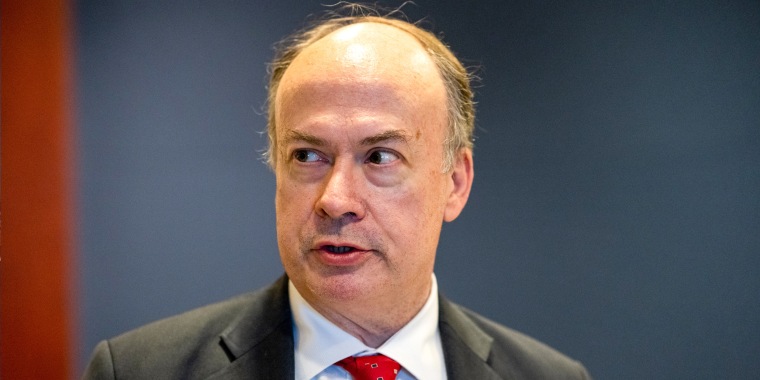
[ad_1]
Mark Meadows notably took the stand in court last month to try and convince a judge that his Georgia prosecution should proceed in federal court instead of state court, where Fulton County District Attorney Fani Willis brought the case. But that testimony hasn’t paid off for the former White House chief of staff, as it wasn’t enough to convince U.S. District Judge Steve Jones that his case should be moved.
Meadows is appealing Jones’ ruling but, if it stands, it’s not only a loss for Meadows but possibly for any of his co-defendants seeking removal. That’s because Meadows arguably has the strongest claim to move to federal court, given his then-chief of staff role. To get removal, one of the things a defendant needs to show is that the charged conduct related to such a federal role — which Meadows nonetheless failed to show, per Jones.
It was against that backdrop that a removal hearing in federal court took place on Monday for one of Meadows’ 18 co-defendants, Jeffrey Clark. After the hearing, it sounds like Clark may meet the same fate of Jones denying removal.
For one thing, Meadows at least showed up to his hearing. The same can’t be said for Clark. Instead, the former Justice Department lawyer filed a written statement ahead of time that he apparently wanted to use instead of testifying. But the judge said the statement couldn’t come into evidence, so unlike Meadows, Clark didn’t put himself in a position to even offer evidence directly, saying nothing of whether such evidence would be convincing.
Clark’s removal argument not only appears to be on shaky legal ground but was presented without sufficient admissible evidence to boot.
The reason that matters is that a criminal defendant has the burden of proving his case should be moved from state to federal court. It’s not like it would be at trial for the charges themselves — whether any trial happens in state or federal court — where the prosecution has the burden of proving the case beyond a reasonable doubt.
That removal burden is apparently what led Meadows to testify in his thus-far-failed effort. And while Jones ultimately rejected the merits of Meadows’ claim, the judge could have an even easier time rejecting Clark’s, if the judge finds the ex-DOJ official’s failure to testify or otherwise provide sufficient admissible evidence is itself enough to show he hasn’t met his removal burden.
Making the removal case even tougher for Clark, the prosecution put on evidence of its own. The state called to the stand Jody Hunt, who served as head of the DOJ’s civil division until July 2020 — a role Clark took over in an acting capacity two months later. NBC News reported that Hunt testified the job had nothing to do with election fraud investigations.
That evidence cuts against Clark’s removal argument that he was acting within his official duties for the charged conduct, with Georgia prosecutors pointing to a letter he wrote, which falsely claimed the DOJ had “identified significant concerns that may have impacted the outcome of the election in multiple States, including the State of Georgia.” Clark wanted top DOJ officials to sign and send the false statement to Georgia officials, Willis alleged in her racketeering indictment.
Clark’s lawyer argued at the removal hearing that his client’s actions were authorized by then-President Donald Trump (another co-defendant in the case). But Jones appeared skeptical of the claim that wasn’t backed by evidence, reported The Washington Post.

So, to recap, Clark’s removal argument not only appears to be on shaky legal ground but was presented without sufficient admissible evidence to boot.
Given that Jones easily disposed of Meadows’ attempt, which was stronger at least when it came to putting on evidence, we should expect the judge to reach the same conclusion for Clark — that he isn’t entitled to federal court removal, either.
Meadows has an appeal pending in the 11th U.S. Circuit Court of Appeals, so we don’t yet know if Jones’ ruling will stand. But for now, it appears that Clark’s effort will likewise fail at this first step in the district court. Now we wait for official word from Jones on that front.
[ad_2]
Source link
